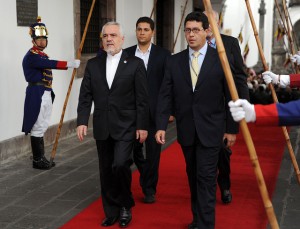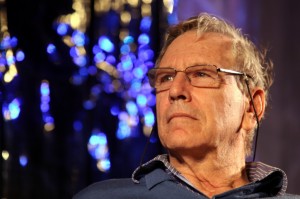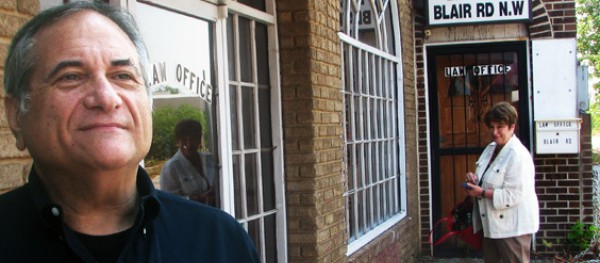Jeffrey Kahn, a Reform rabbi living in Washington, D.C., remembers several congregants who approached him over the years with the same dilemma: They’d heard that marijuana could relieve their nausea from chemotherapy or their pain from glaucoma or any one of a variety of other ailments, but they were unable to obtain the drug because it’s illegal.
 The issue became personal when Kahn and his wife, nurse Stephanie Reifkind Kahn, watched her parents suffer and die — Jules Reifkind of multiple sclerosis in 2005 and Libby Reifkind of cancer in 2009. The Reifkinds’ doctors had recommended marijuana to ease their symptoms, but they lived in states where medical marijuana was illegal, making it nearly impossible for them to obtain the drug. Jules did use it a few times, probably getting it from a caregiver, his daughter remembers, and it reduced his pain and muscle spasms.
The issue became personal when Kahn and his wife, nurse Stephanie Reifkind Kahn, watched her parents suffer and die — Jules Reifkind of multiple sclerosis in 2005 and Libby Reifkind of cancer in 2009. The Reifkinds’ doctors had recommended marijuana to ease their symptoms, but they lived in states where medical marijuana was illegal, making it nearly impossible for them to obtain the drug. Jules did use it a few times, probably getting it from a caregiver, his daughter remembers, and it reduced his pain and muscle spasms.
After the deaths of Jules and Libby Reifkind, the Kahns made it their mission to ease the suffering of others who might benefit from medical marijuana. For the past two years, they have been laying the groundwork for a legal dispensary for medical marijuana in Washington. Earlier this month, their efforts paid off: The D.C. Department of Health named four applicants eligible to register to operate such dispensaries — the first ones in the District — and the Kahns’ Takoma Wellness Center was one of them.
Dispensing marijuana may not be the usual path for a rabbi. But there is rabbinical support for the practice. And on a personal level, Kahn, 60, told me last week: “Our midlife quest for a new way to make a positive difference in people’s lives and a lifelong commitment to pushing the envelope to help others made this the obvious path to follow.”
***
College sweethearts who married 36 years ago during spring break from the University of Florida, the Kahns made aliyah in 2007. In Israel, he was involved in fundraising for Jewish organizations, after having spent more than 25 years with four different Reform congregations, including six years in Adelaide, the capital of South Australia.
But the economic downturn in 2008 made fundraising difficult, Kahn told me. Their older son, who’s also a Reform rabbi, had moved to Washington, D.C., where he now works for a Jewish social service organization. When they came for the bris of their grandson, now 3, they realized they didn’t want to live so far away from the baby. (Their younger son, who made aliyah at age 20, now serves as the Jewish Agency for Israel’s shaliach at his parents’ alma mater.) It was a homecoming of sorts for Stephanie Reifkind Kahn, who was born 57 years ago in Takoma Park, Md. — which borders the Takoma neighborhood in D.C. where they now live.
Medical marijuana was a hot-button issue in the nation’s capital when the Kahns moved here. Washington, D.C., voters had approved the legalization of medical marijuana more than 2-to-1 back in 1998, but Congress — granted ultimate authority over the city by the Constitution — blocked it with an amendment to the D.C. appropriations bill. In December 2009, though, Congress repealed the amendment, due in part to lobbying by former Georgia Republican Rep. Bob Barr, who had originally added it. The city issued regulations in July 2010 that said it would license up to five dispensaries and 10 cultivation centers; neighboring Maryland and Virginia have not yet legalized medical marijuana.
With their sons’ blessings and, eventually, the support of their local Advisory Neighborhood Commission, the Kahns started paying rent a year and a half ago on a long-vacant, 1,300-square-foot former attorney’s office within steps of the Takoma Metro station. Their apartment is half a block away; their older son and his family, which now includes two grandsons, live two miles away.
started paying rent a year and a half ago on a long-vacant, 1,300-square-foot former attorney’s office within steps of the Takoma Metro station. Their apartment is half a block away; their older son and his family, which now includes two grandsons, live two miles away.
The Kahns submitted 350 pages of documents to support their application. “We had this pretty strict review process,” said Mohammad Akhter, the physician who directs the D.C. Department of Health. “It’s very tightrope-walking. On the one hand we have a city law. On the other hand, we have law-enforcement officials, federal officials, who consider this not quite kosher.”
Applicants had to demonstrate that they “had the knowledge about what this business was all about,” Akhter said, and they needed to be able to provide adequate security and keep scrupulous records. (To avoid a conflict of interest, Akhter noted, he has never met the Kahns or any of the 16 other parties who applied to dispense medical marijuana in Washington.) “I think the rabbi is doing the Lord’s work,” said the Pakistani-born doctor, noting that Washington has high rates of diseases for which medical marijuana is approved, such as HIV/AIDS and cancer.
In August 2010, the Washington City Paper predicted that the first dispensaries might open in the spring of 2011. Akhter attributes the delay to the typically slow wheels of government and the desire to ensure that federal law-enforcement officials won’t shut down the dispensaries as soon as they open. “It’s a very lengthy process in terms of doing the review,” he said. “As a physician, I look at this as approving a new drug. We have done all the due diligence possible.”
Dispensing medical marijuana doesn’t pose any particular conflict for a rabbi, said Kahn: “As a medicine, there are no Jewish issues,” he told me. Just as sick Jews aren’t supposed to fast on Yom Kippur, he says, neither should they be expected to suffer because the federal government says marijuana has no medical benefit, especially given that 18 other Western countries that have legalized it for medical purposes — as well as 17 states plus D.C. — disagree.
The Union for Reform Judaism passed a resolution nearly nine years ago on “the medicinal use of marijuana.” “According to our tradition, a physician is obligated to heal the sick,” the resolution states. And, at least anecdotally, marijuana apparently “provides relief from symptoms, conditions, and treatment side effects of several serious illnesses.” For that reason, the resolution urges “congregations to advocate for the necessary changes in local, state, and federal law to permit the medicinal use of marijuana and ensure its accessibility for that purpose.”
It’s not just Reform rabbis, either. A number of rabbis across the spectrum of observance believe prescribing medical marijuana to relieve suffering is acceptable under Jewish law.
“Basically, Jewish teaching is extremely supportive,” said J. David Bleich, an Orthodox rabbi and professor of Talmud at Yeshiva University’s Rabbi Isaac Elchanan Theological Seminary and head of its postgraduate institute for the study of Talmudic jurisprudence and family law. “The beneficial purpose of marijuana seems to be countering the side effects of chemotherapy and other symptoms … and there’s no reason society shouldn’t take advantage of it.” Jurisdictions that approve and regulate medical marijuana, Bleich said, “certainly are to be lauded.”
The Kahns hope they’ll be able to serve their first patients by the beginning of December. For now, though, there is no marijuana to dispense, because in Washington, the dispensers of medical marijuana won’t be the ones growing it. In addition to approving four dispensaries out of 17 applicants, the health department approved six cultivators from among 28 applicants. (One of the six is a company co-owned by former talk-show host Montel Williams, a Maryland native who uses medical marijuana to treat his multiple sclerosis.) The cultivators still need to make structural changes to their facilities and haven’t yet started growing marijuana, Akhter says; once they begin, it will take 90 to 100 days before they will be able to supply the dispensaries.
No patients have yet been approved by the health department to receive medical marijuana, either, although many have expressed an interest, Akhter says. They must prove that they live in D.C. and receive a prescription from a doctor licensed to practice in the city. This process, too, will take time.
Once they open their doors, the Kahns’ have a business plan based on serving 500 patients their first year, although at best that’s a guesstimate. Their dispensary will serve patients by appointment only, making it less like a retail store and more like a doctor’s office, Kahn says. He and his wife also plan to partner with Takoma providers and refer patients to a wide array of complementary health services available in the laid-back neighborhood.
The Kahns hope that their dispensary will serve as a model for Congress to see that marijuana can safely be used to treat appropriate patients without ending up being diverted to people who aren’t ill. Kahn summed up his mission: “There’s no reason for people to be suffering and not getting the help they need.”

